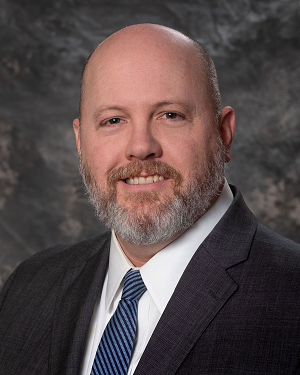Top-Level Takeaways
-
United assigns finance team members to every department to share ideas and gain insight.
-
The initiative helps each department re-budget the year every month while building broader knowledge base for the credit union and opportunities for these mini-CFOs.
Maya Angelou said, in diversity there is strength, and United Federal Credit Union ($3.3B, St. Joseph, MI) is putting that idea into action in its budgeting process.
Under the direction of CFO Michael Ruchti, who joined the southwest Michigan cooperative in March 2018, United is embedding its finance team within other departments on a regular basis to encourage a collaborative, iterative budgeting process that draws on everyone’s strengths.

Michael Ruchti, CFO, United FCU
This is all occurring during a pandemic in which the big Michigan cooperative extensively revamped its technology production calendar and even kept construction of its new headquarters on schedule.
Here, in his own words, is how Ruchti describes the new collaborative budgeting process.
A Team Structure That Leverages Different Experiences
A majority of my prior career has been in manufacturing, so I’ve been on a steep learning curve my entire time here. My team is a mixture of seasoned industry veterans and experienced professionals who are new to the industry.
This diverse experience on the finance team lends itself to some creative ideas. We’re able to leverage the experience inside and outside the industry to its fullest potential while also growing new expertise. The result is an enhanced budget process that engages employees and emphasizes collaboration as we work to make United’s financial goals understandable and attainable.
Integrating New Folks Into The Business They Support
I’ve always found the finance professionals who developed the best budgets were those who were integrated into the businesses they support. I’ve also found integrating a new-to-the-industry professional into the business they support is the best way to quickly bring that person up to speed. I liken it to learning a new language by living in the country where the language is spoken.
Instead of having department leaders memorize which accounting team member is responsible for what, each department is given their ownmini-CFO’ who they can go to with questions related to finance or accounting.
With that mindset, I was determined to create a finance support structure that simplified the process for leaders in other departments. Instead of having department leaders memorize which accounting team member is responsible for what, each department is given their own mini-CFO who they can go to with questions related to finance or accounting.
Purposeful Discussions That Lead To Business Solutions
The mini-CFO attends department staff meetings and follows a regular meeting cadence with the functional leaders within the department where they address, among other things, budget variances at the general ledger (GL) level.
These meetings result in thoughtful, purposeful conversations that go beyond explaining variances and extend into solving business issues. An additional benefit of this structure is that the functional leaders have one source for their finance and accounting questions.
The departments develop stronger budgets in less time because the finance support team is, essentially, helping leaders re-budget every month.
Although it was labor intensive to implement the new concept because the department staff and ad hoc meetings were in addition to the finance team’s day jobs, it’s already leading to a much stronger understanding of the business for my new-to-the-industry finance team members.
Furthermore, the departments develop stronger budgets in less time because the finance support team is, essentially, helping leaders re-budget every month.
A Deeper Understanding Of Business Means Better Budgeting
In short, our new budget process is not one that has a beginning and an end; rather, it’s an ongoing business practice that results in many outputs, one of which happens to be a budget.
This approach is resulting in better overall business decisions due to the deeper understanding of business drivers. With a deeper understanding business drivers, a better budget can be developed, and our performance against that budget will be more relevant to the leadership team.
Our new budget process is not one that has a beginning and an end; rather, it’s an ongoing business practice that results in many outputs, one of which happens to be a budget.
Mini-CFOs And Non-Finance Roles
The mini-CFO is intimately familiar with the driving forces of the changing needs of their assigned department and eventually will become a sought-after consultant whose advice is critical to any business decision and integral to the success of that department.
True success will also be evident when our finance team members are considered for opportunities in non-finance job openings due to their understanding of the functional business operations and their superior business acumen that will come from this type of constant business interaction.
This interview has been edited and condensed.